
Discover the science behind copper sulfate dissolving in water and its applications in chemistry.

Learn why coffee is soluble and how it affects brewing in this informative Q&A video.

Discover six common materials that are insoluble in water and why they resist dissolving.

Explore what insoluble matter is, including examples like sand and plastic. Understand why some substances don't dissolve.

Learn how to test solubility in substances and understand the key factors that classify them as soluble or insoluble.

Discover the solubility properties of milk and its unique colloidal nature. Learn about soluble proteins and insoluble fats in milk.
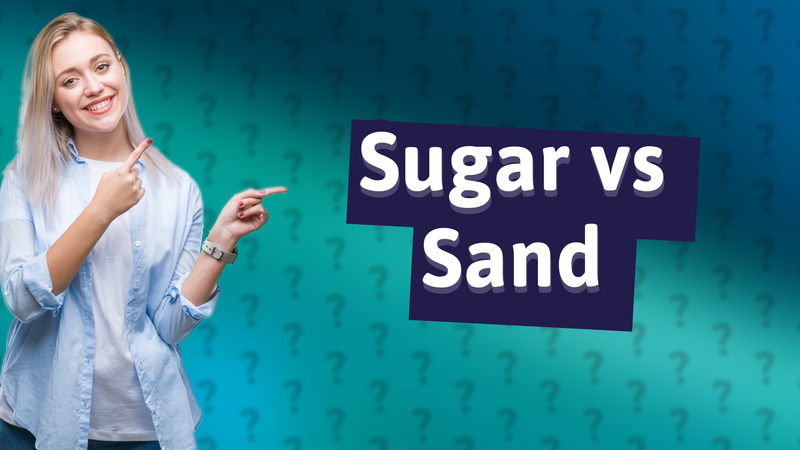
Discover the differences between soluble and insoluble solutions with clear examples like sugar and sand in water.

Learn what soluble and insoluble substances are with clear examples for Grade 6 science.
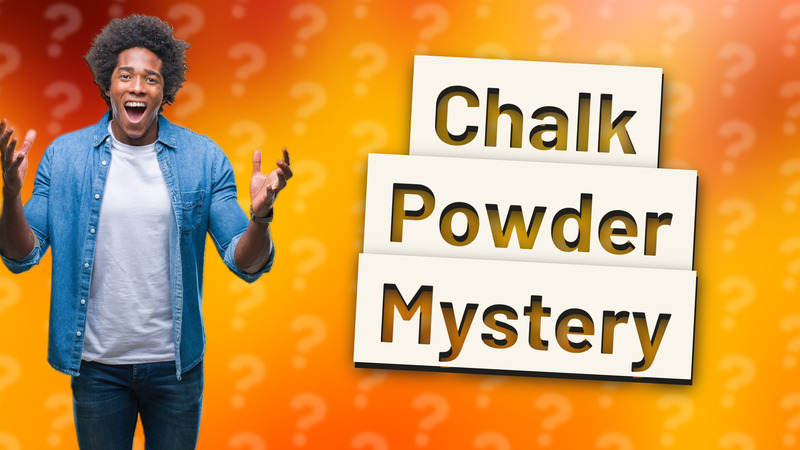
Learn whether chalk powder is soluble in water and find out why it remains suspended when mixed.

Learn about soluble and insoluble substances with examples like sugar, salt, and wax. Explore their importance in daily applications.

Learn what insoluble substances are and their significance in science experiments and mixtures.

Explore 10 common items that are insoluble in water, including oil, plastic, and more.

Explore how solubility works through the simple example of sugar dissolving in hot water when making tea.

Learn about soluble class 10 substances and their significance in chemistry, including examples like salt and sugar.

Learn why oil is insoluble in water and its hydrophobic properties that cause separation in various applications.

Explore solubility, its basic concepts, and real-life applications in this informative guide for Year 8 students.

Explore the reasons behind the insolubility of certain substances in this insightful Q&A.

Discover why sand and oil do not dissolve in water and their properties. Learn about mixtures and separation techniques.

Learn what soluble substances are and how they interact with solvents like water.
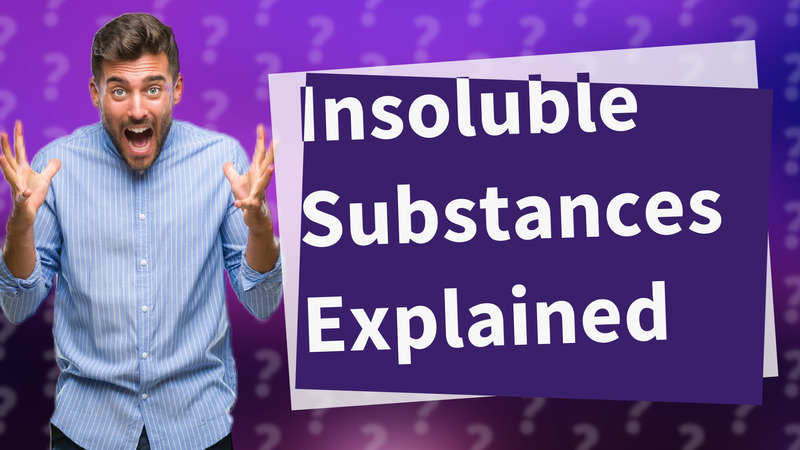
Learn about insoluble substances and their properties in Class 10 science, with examples like sand in water.

Explore materials that don't dissolve in water, including oils and plastics. Learn why these substances remain insoluble!
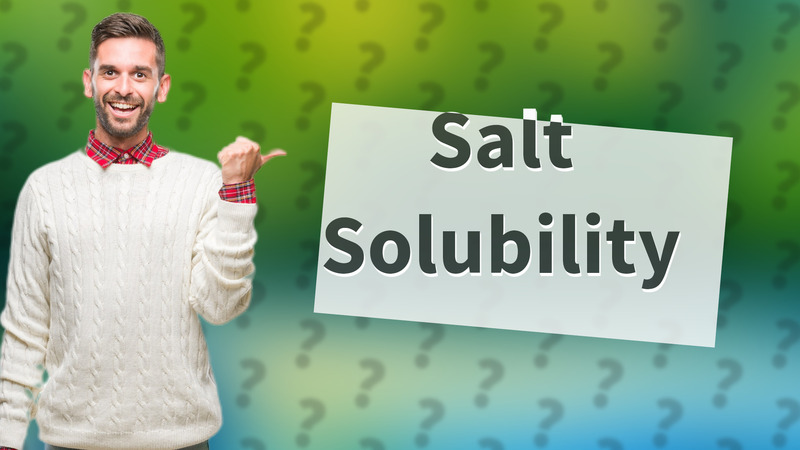
Discover which substances dissolve in water, focusing on salt (sodium chloride) and its applications.

Discover key examples of soluble and insoluble substances, their definitions and applications in everyday life.

Discover examples of soluble and insoluble mixtures like salt in water and sand in water, and how they differ.

Learn about soluble and insoluble substances with examples, ideal for Grade 5 science concepts.

Learn about soluble and insoluble substances and their differences in Class 9 Science with practical examples.

Learn why sugar is highly soluble in water and its applications in beverages and baking.

Learn about items that are generally insoluble, including metal oxides, hydroxides, sulfides, and more.

Explore the fundamental differences between soluble and insoluble mixtures and their applications in various fields.

Explore the solubility of salt in water and its importance in cooking and food preparation.
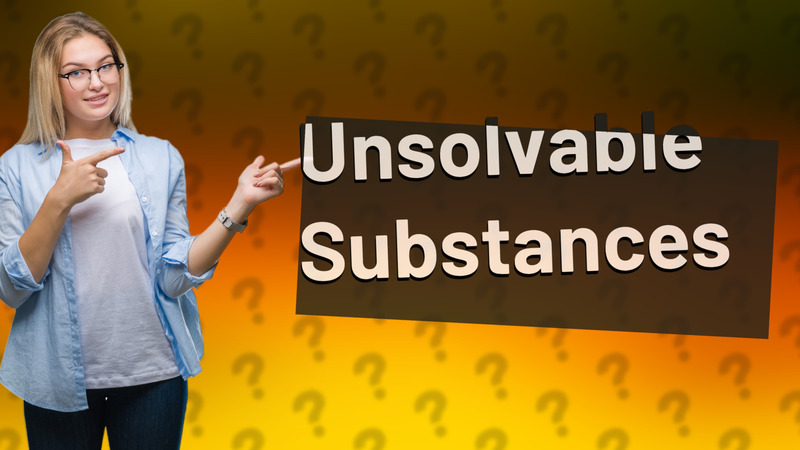
Discover common substances that don't dissolve in water, like oil and sand, and learn why solubility matters.

Discover what soluble substances are, featuring table salt as a clear example of solubility in action.

Learn what soluble substances are with easy examples for kids! Discover how materials dissolve in liquids.

Learn about oil and mercury, the two insoluble liquids in water, and their unique properties.

Discover why some substances remain insoluble due to molecular attraction and factors like temperature and pH.

Discover 20 common soluble substances that easily dissolve in water. Enhance your knowledge of chemistry today!

Learn how to check if a product is insoluble with easy tests and tips on understanding solubility rules.

Learn why coconut oil is not soluble in water and explore its properties.

Discover the types of substances that dissolve in water: ionic compounds like salt and polar molecules such as sugar.

Learn about the solubility of lemon juice in water and its applications in recipes.

Explore what Soluble Grade 7 entails in science education, focusing on solutes and solvents.

Learn whether acetone is soluble in water and discover its chemical properties and applications.

Explore solubility concepts with Class 9 examples like salt, sugar, and water. Learn how substances dissolve!
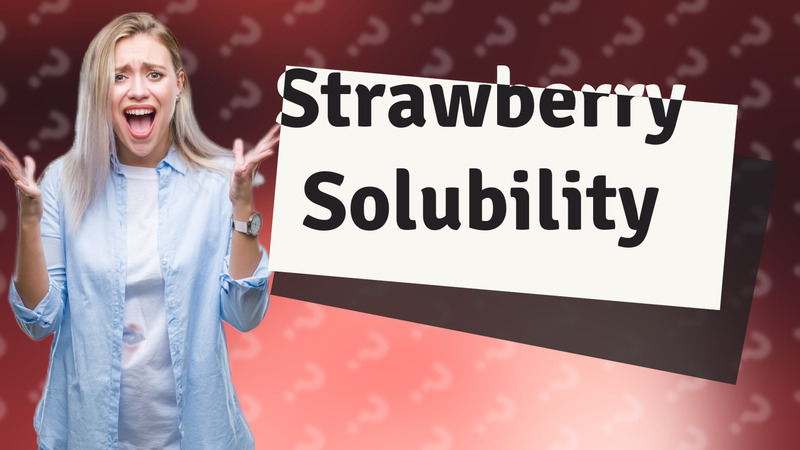
Discover if strawberries dissolve in liquids or retain their solid form. Learn about their properties and nutrient release.

Discover why some substances cannot dissolve in solvents and the factors affecting solubility dynamics.

Learn how salt (sodium chloride) dissolves in water and its applications in cooking and science.